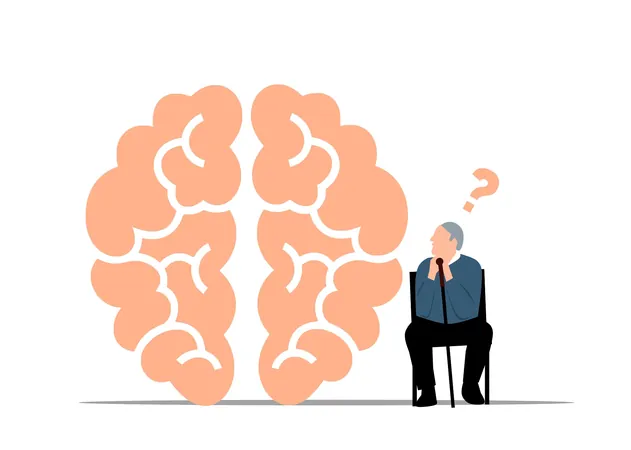
Uncovering the Hidden Truth: Why Women Are Disproportionately Affected by Dementia
2025-09-22
Author: Kai
A Surprising Truth About Alzheimer's and Women
Did you know that nearly two-thirds of all Alzheimer's patients in the U.S. are women? This staggering statistic reveals a shocking reality: women not only dominate the numbers but also tend to experience a quicker decline in cognitive health compared to their male counterparts. The reasons behind this distressing gender gap have puzzled researchers—for years, it remained shrouded in mystery—until now.
Stroke Risk: A Game Changer for Women
Dr. Farida Sohrabji, a leading expert at Texas A&M University, has shed light on why older women face a higher risk of dementia. Her research indicates that biological sex plays a profound role in increasing stroke risk among older women, a significant factor that accelerates the onset of dementia. "Every decade after 50, women are more prone to severe strokes compared to men," Dr. Sohrabji warns, emphasizing that this tendency lays the groundwork for cognitive decline and dementia. Her findings have crucial implications for future drug development and personalized healthcare strategies.
Precision Medicine: A New Frontier in Treatment
The landscape of medical treatment is evolving, and Dr. Sohrabji’s findings are part of a broader movement toward precision medicine. This innovative approach tailors treatments based on individual characteristics, notably sex. "Not all treatments have the same efficacy in men and women," she explains. The differences in brain chemistry mean that understanding these nuances can lead to more effective therapies, especially in the realm of Alzheimer's care, where women represent the majority of patients.
The Hormonal Connection: Menopause and Alzheimer’s Risk
Dr. Sohrabji and her team have honed in on hormonal changes during menopause as a pivotal factor in women’s higher dementia risk. With the drop in estrogen levels, women’s brains become increasingly susceptible to inflammation and stroke—two key contributors to cognitive decline. Interestingly, while estrogen has protective qualities against strokes in some models, its effects can dramatically shift. Dr. Sohrabji discovered that in cases where ovaries were removed, estrogen treatment worsened outcomes—a testament to how complex the relationship is.
Groundbreaking Discoveries: IGF-1 and Neuroprotection
In light of these findings, Sohrabji's team explored the potential of a small peptide known as IGF-1 (insulin-like growth factor) alongside estrogen therapy. The results were astonishing. Not only did this combination reverse the detrimental effects of estrogen, but IGF-1 was found to be a powerful neuroprotective agent on its own. "This could revolutionize treatment options for women at risk of stroke and dementia," she said. Subsequent tests showed that even a tiny, non-coding RNA molecule provided significant protection against cognitive decline in older female subjects.
Acknowledging Sex Differences for Better Health Outcomes
Dr. Sohrabji’s research marks a critical shift from generic treatments to those that consider sex differences. "These disparities are not trivial; they are fundamental to understanding why dementia and Alzheimer’s burden women disproportionately," she stated emphatically. With advancements in sex-specific research, there’s hope for a future where Alzheimer’s care is inclusive and effective for women, reducing the overwhelming weight of this disease. "Our ultimate goal is to enhance human health and tackle these significant challenges head-on," she concluded, embodying her commitment to this essential cause.
 Brasil (PT)
Brasil (PT)
 Canada (EN)
Canada (EN)
 Chile (ES)
Chile (ES)
 Česko (CS)
Česko (CS)
 대한민국 (KO)
대한민국 (KO)
 España (ES)
España (ES)
 France (FR)
France (FR)
 Hong Kong (EN)
Hong Kong (EN)
 Italia (IT)
Italia (IT)
 日本 (JA)
日本 (JA)
 Magyarország (HU)
Magyarország (HU)
 Norge (NO)
Norge (NO)
 Polska (PL)
Polska (PL)
 Schweiz (DE)
Schweiz (DE)
 Singapore (EN)
Singapore (EN)
 Sverige (SV)
Sverige (SV)
 Suomi (FI)
Suomi (FI)
 Türkiye (TR)
Türkiye (TR)
 الإمارات العربية المتحدة (AR)
الإمارات العربية المتحدة (AR)